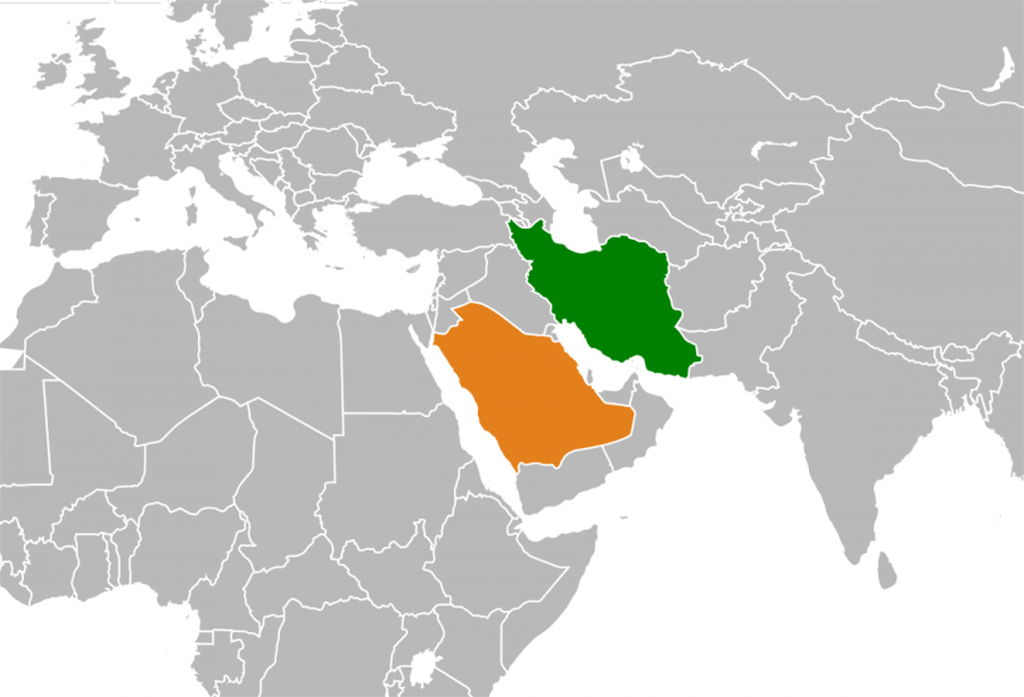
Heavy price of saving the day in the Middle East
We need to see that a big, malevolent game is being played. Of course, regional countries' faulty strategies, steps to save the day and especially elites' efforts to gain ground in domestic politics catalyze foreign powers' manipulations and interventions. However, it is indisputable that the region is currently facing a new policy of disintegration plotted by foreign powers.
Share
here have been vigorous efforts to stir up an atmosphere of large-scale, long-term conflict in our region. The alarming picture gets more evident as all the pieces join together.
First of all, efforts have been made to foment a hot conflict between Iran and Saudi Arabia.
During the term of the previous U.S. administration, the U.S. government not only condoned Iran's expansionist policy, but also covertly supported it to disrupt Sunni hegemony and set new balances in the Middle East. Of course, the main motivation was to create an environment that would stir up a Sunni-Shiite conflict. And unfortunately, the new administration has not yet abandoned this.
We should not be misled by current U.S. President Donald Trump describing Iran as the primary threat in the region and accusing former President Barack Obama of giving ground to Iran. The new administration also seeks to take steps to trigger a Sunni-Shiite conflict. In this context, they have been taking steps to render Saudi Arabia a proxy against Iran and mobilize the former into the field in this respect. Internal dynamics in Saudi Arabia stand out as a component of this process to a considerable extent.
Following Lebanese Prime Minister Saad Hariri's resignation, Saudi Arabia started issuing statements against Hezbollah. Saudi Minister for Gulf Affairs Thamer al-Sabhan said on Monday that they regard Lebanon as a government declaring war on Saudi Arabia because of the influence of Iran and Hezbollah's acts of aggression. Meanwhile, Saudi Foreign Minister Adel al-Jubeir called Iran's latest actions hostile and said they reserve "the right to respond in the appropriate manner at the appropriate time." Also, Saudi Crown Prince Mohammad bin Salman blamed Iran for the latest missile strike on Saudi Arabia and emphasized that Iran's actions may be considered an act of war.
After Yemen, a new front has opened in Lebanon through which a Saudi-Iran conflict could be staged. I previously wrote that Hariri's controversial resignation laid the groundwork for a new conflict in the region. Currently, preventing a possible Saudi-Iranian war is of the utmost importance. Such a war would wreck regional balances and create an array of profound traumas in the region.
We need to see that a big, malevolent game is being played. Of course, regional countries' faulty strategies, steps to save the day and especially elites' efforts to gain ground in domestic politics catalyze foreign powers' manipulations and interventions. However, it is indisputable that the region is currently facing a new policy of disintegration plotted by foreign powers.
These forces also attempt to exacerbate the war in Syria by impeding every step taken toward a solution. They also exert efforts to prevent the decline of the separatist, pan-Kurdist movement in Iraq, maintaining propaganda that the West should not give up on Kurdistan's ambitions.
We arrived in Washington with Prime Minister Binali Yıldırım on Tuesday amid all these developments. Energy and Natural Resources Minister Berat Albayrak and Foreign Minister Mevlüt Çavuşoğlu accompanied Yıldırım on this critical visit. In the midst of this chaotic atmosphere, Turkey strives to protect its national security, political stability and economic welfare as well as guarantee the resolution of the chaos. In my next article, I will try to shed light on the effects of this visit on Turkish-U.S. relations.
[Daily Sabah, 10 November 2017]
Tags »
Related Articles






